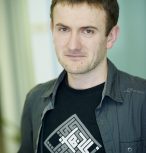DNA reveals the past and future of coral reefs
New DNA techniques are being used to understand how coral reacted to the end of the last ice age in order to better predict how they will cope with current changes to the climate. James Cook Univer

From 2005 to 2022, the main node of the ARC Centre of Excellence for Coral Reef Studies was headquartered at James Cook University in Townsville, Queensland (Australia)








Abstract: Corals form the trophic and structural foundation of coral reefs, one of the richest and most diverse ecosystems on the planet. This success is the result of two major aspects of Scleractinian physiology: the symbiotic association with photosynthetic Dinoflagellates and the formation of an external skeleton made of calcium carbonate (biomineralisation). Despite the projected loss of coral reefs and the direct socio-economic consequences associated with this loss, our fundamental understanding of the Cnidarian-Dinoflagellate physiology that underlies the ecological success of reefs remains poor. A greater understanding of the cell biology of corals is essential if we are to fully understand the mechanisms by which they are impacted by stress and whether or how they might survive climate change and other environmental perturbations. The day-night cycle is a natural environmental variation during which corals undergo physiological changes, mainly due to the photosynthetic activity of the Dinoflagellates that provides high levels of oxygen and energy to the animal host. This supply of energy is particularly able to stimulate skeletal deposition, a phenomenon known as Light-Enhanced Calcification. By comparing gene expression between day and night in Acropora millepora, we confirm previous mechanisms of nutrient exchanges in symbiotic Cnidarians but also provide new insights on calcification regulation. Moreover, in other calcifying organisms such as molluscs, a better understanding of biomineralisation came from the ability to dissect the calcifying tissues from the rest of the organism. We were able to use a similar approach and separate the tissues responsible for symbiosis and calcification in the Fungid coral Heliofungia actiniformis. The assembly of a reference transcriptome and the study of gene expression in the different tissues already provide exciting preliminary results. This approach may represent a new molecular tool for comparative studies and a better comprehension of coral physiology.
Biography: Anthony is originally from Corsica (France) and obtained a Master degree in Ecology and Evolution in 2007 at the University of Nice Sophia-Antipolis. During this period, he started to work on symbiotic cnidarians by studying the effects of global warming on the oxidative stress resistance of the only symbiotic Mediterranean gorgonian: Eunicella singularis. He then started a PhD at the Centre Scientifique de Monaco (2007-2010) during which he used molecular biology, physiology and pharmacology methods to better comprehend the inorganic carbon transport and utilization in reef-building corals. In 2011, he accepted a teaching assistant position in Nice. Anthony recently joined the ARC Centre of Excellence for Coral Reef Studies as a SuperScience postdoctoral fellow for a 3-year period in the coral genomics group to study the differential expression of genes and physiological responses of corals to environmental parameters and global change.
New DNA techniques are being used to understand how coral reacted to the end of the last ice age in order to better predict how they will cope with current changes to the climate. James Cook Univer
A new study on the effects of climate change in five tropical countries has found fisheries are in more trouble than agriculture, and poor people are in the most danger. Distinguished Profess
James Cook University researchers have found brightly coloured fish are becoming increasingly rare as coral declines, with the phenomenon likely to get worse in the future. Christopher Hemingson, a
Researchers working with stakeholders in the Great Barrier Reef region have come up with ideas on how groups responsible for looking after the reef can operate more effectively when the next bleaching
Abstract: As marine species adapt to climate change, their heat tolerance will likely be under strong selection. Individual variation in heat tolerance and its heritability underpin the potential fo
Abstract: The Reef Ecology Lab in KAUST’s Red Sea Research Center explores many aspects of movement ecology of marine organisms, ranging from adult migrations to intergenerational larval dispersal
Abstract: Macroalgal meadows are a prominent, yet often maligned component of the tropical seascape. Our work at Ningaloo reef in WA demonstrate that canopy forming macroalgae provide habitat for ad
Abstract: Sharks are generally perceived as strong and fearsome animals. With fossils dating back at least 420 million years, sharks are not only majestic top predators but they also outlived dinosa
Abstract: Connectivity plays a vital role in many ecosystems through its effects on fundamental ecological and evolutionary processes. Its consequences for populations and metapopulations have been
Abstract: Evolution of many eukaryotic organisms is affected by interactions with microbes. Microbial symbioses can ultimately reflect host’s diet, habitat range, and even body shape. However, how
Abstract: The past few years have seen unprecedented coral bleaching and mortality on the Great Barrier Reef (GBR) but the consequences of this on biodiversity are not yet known. This talk will expl